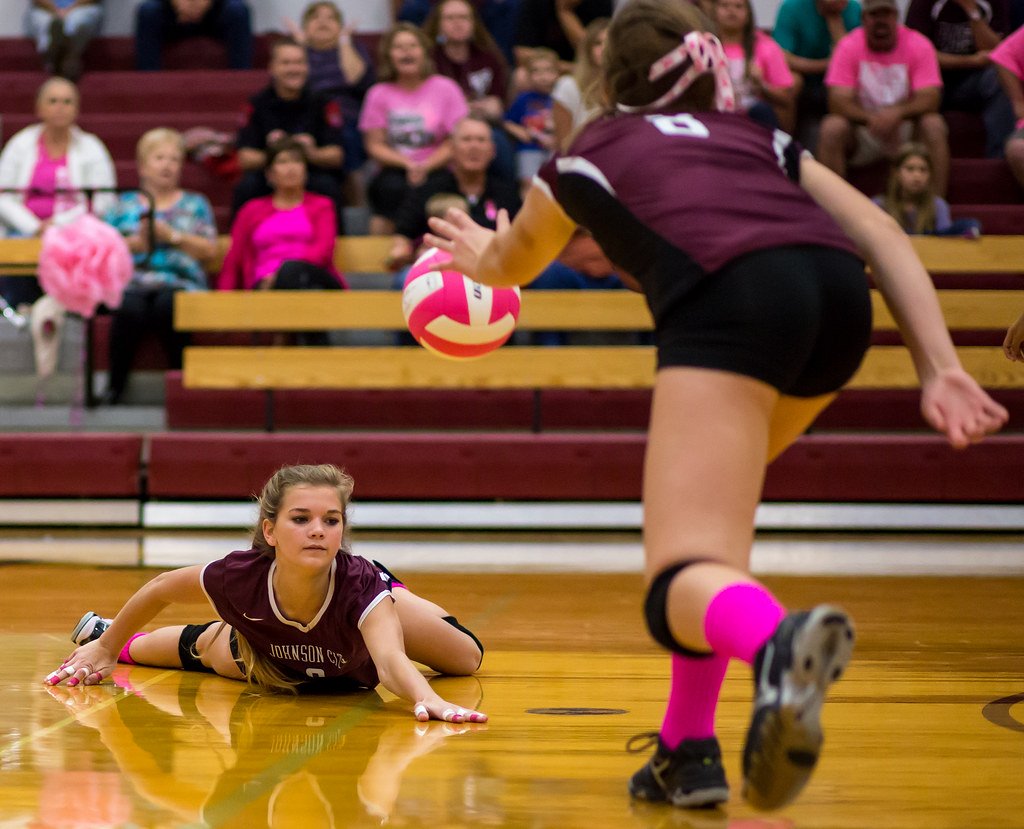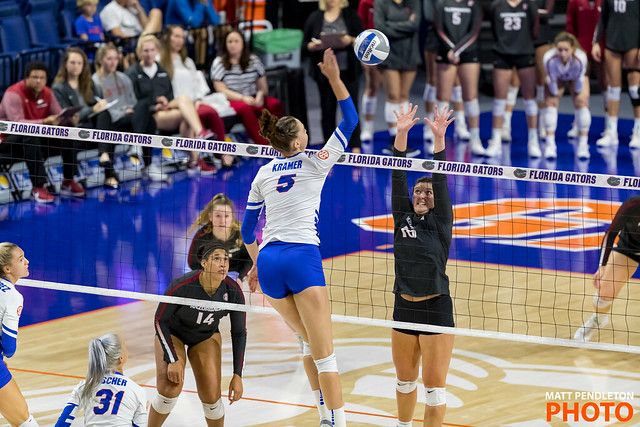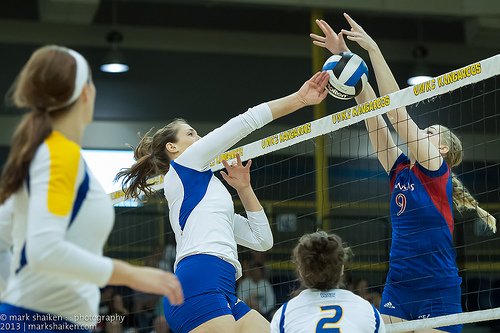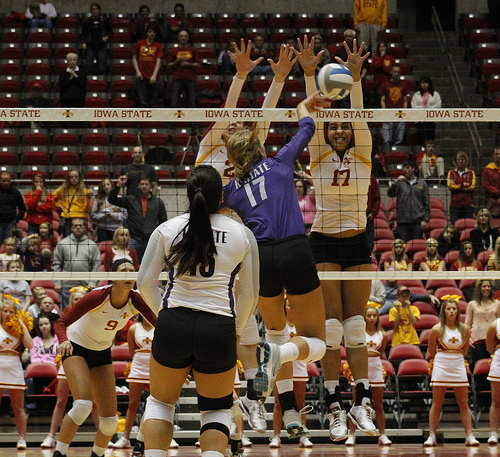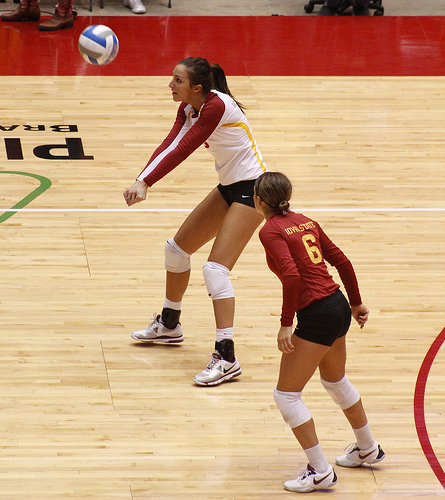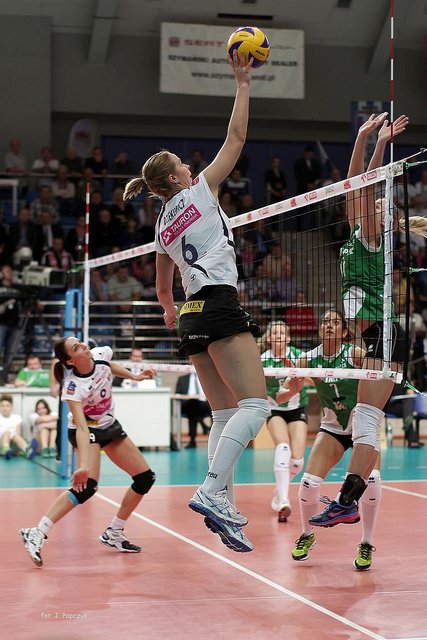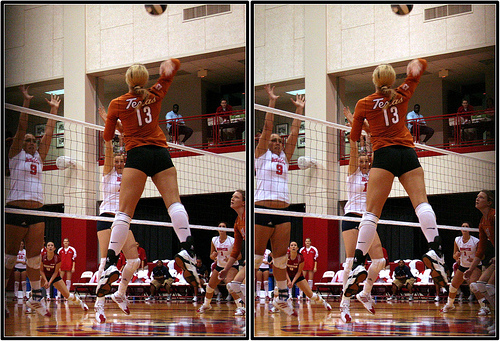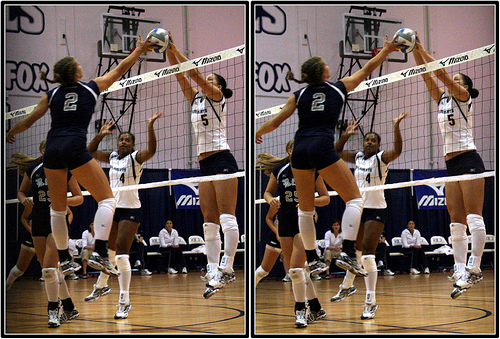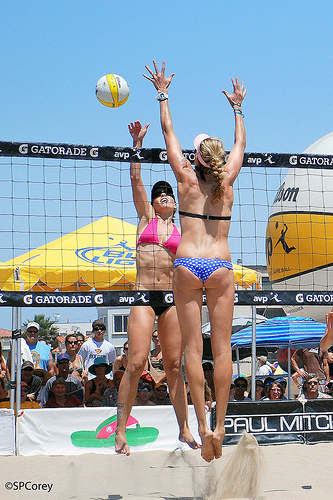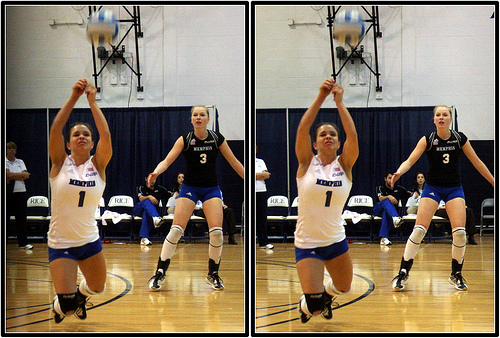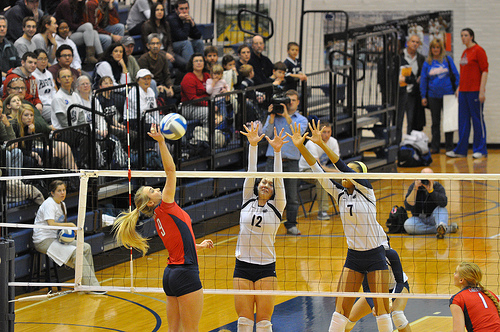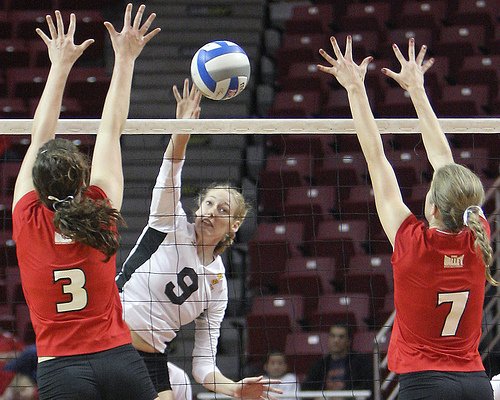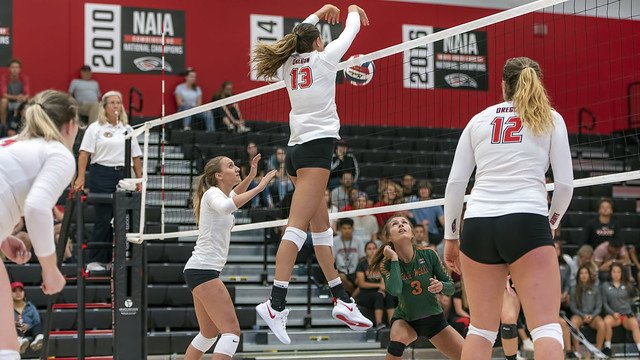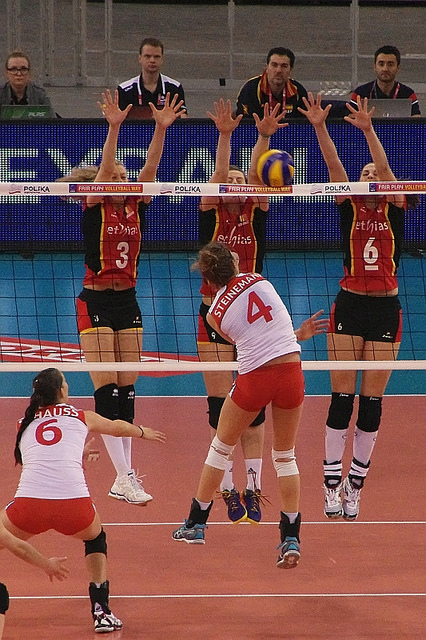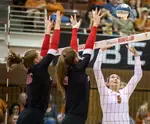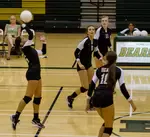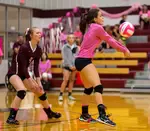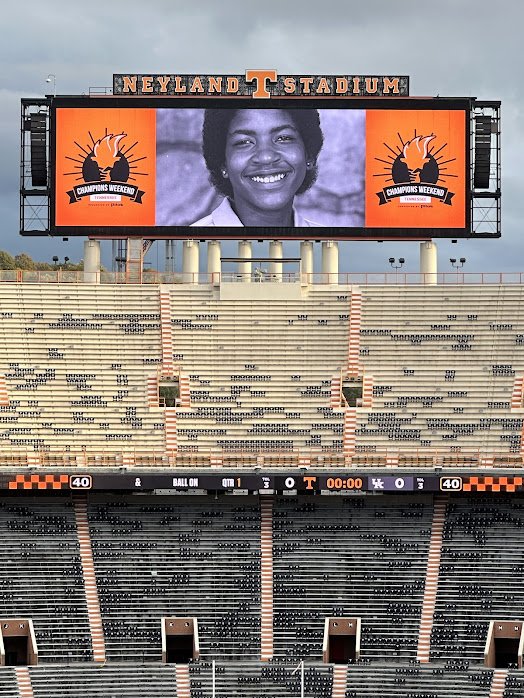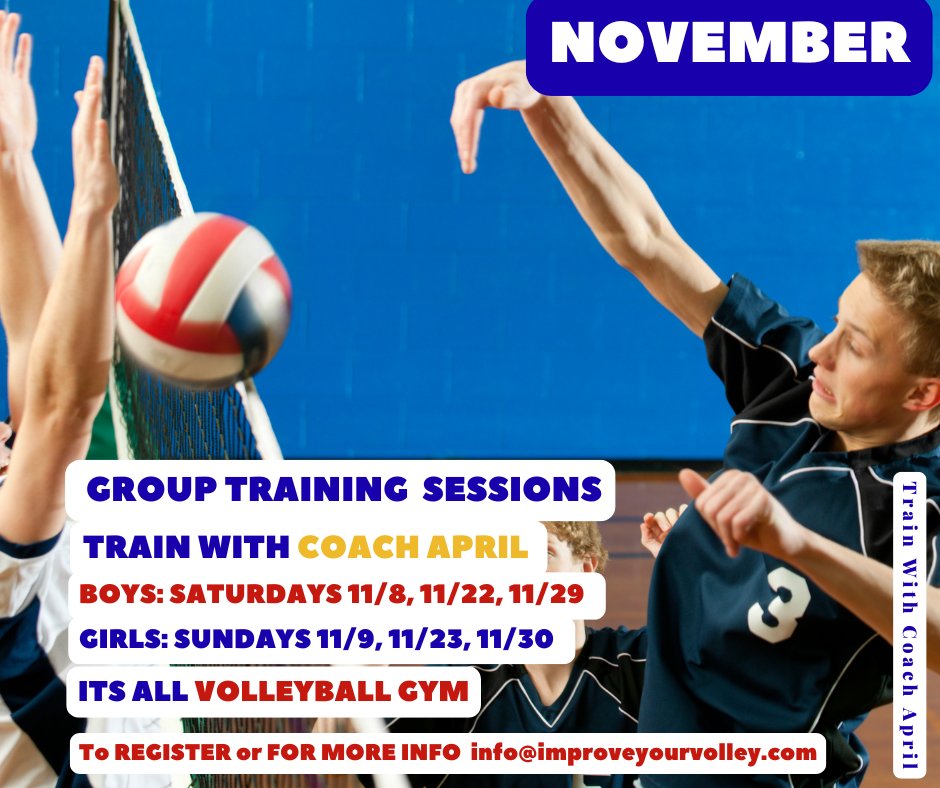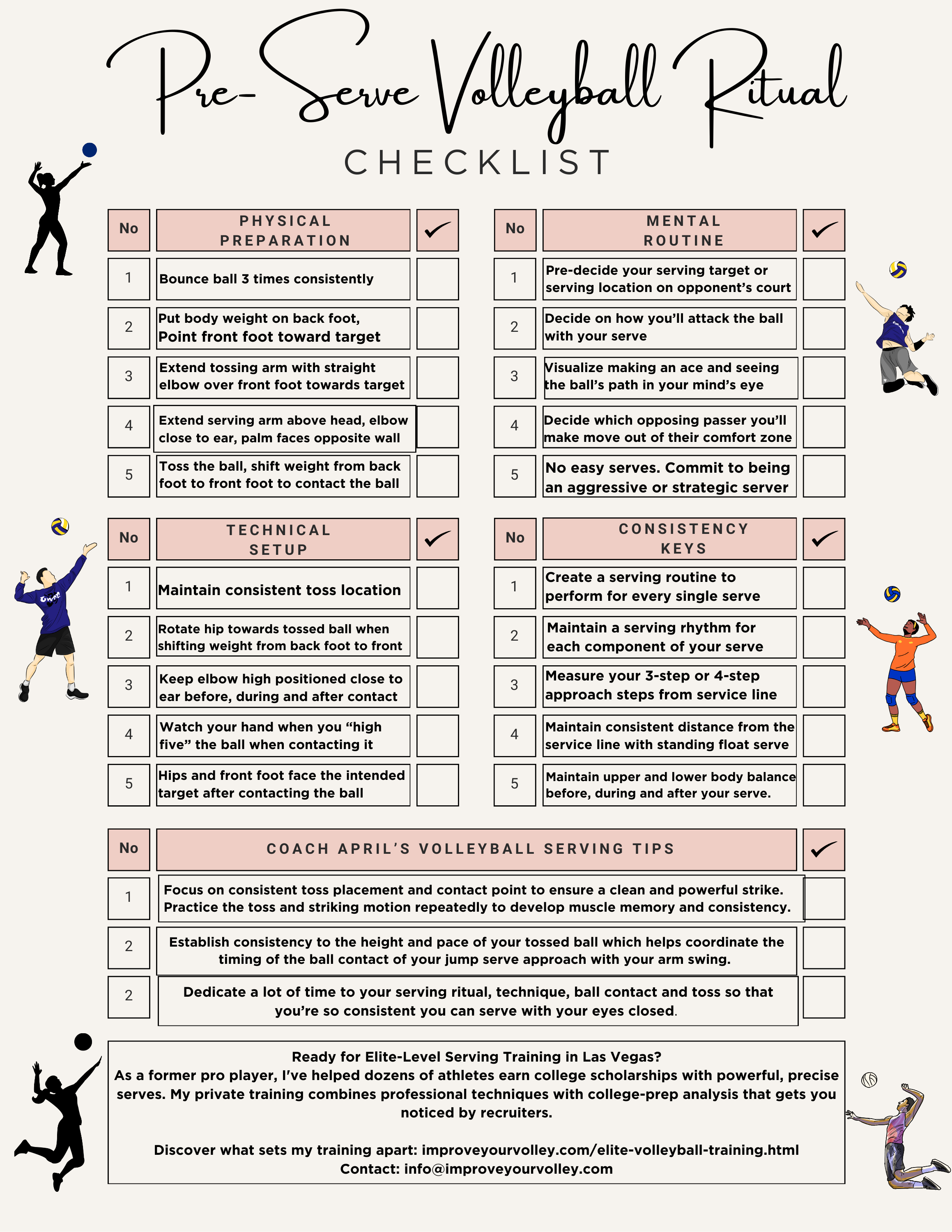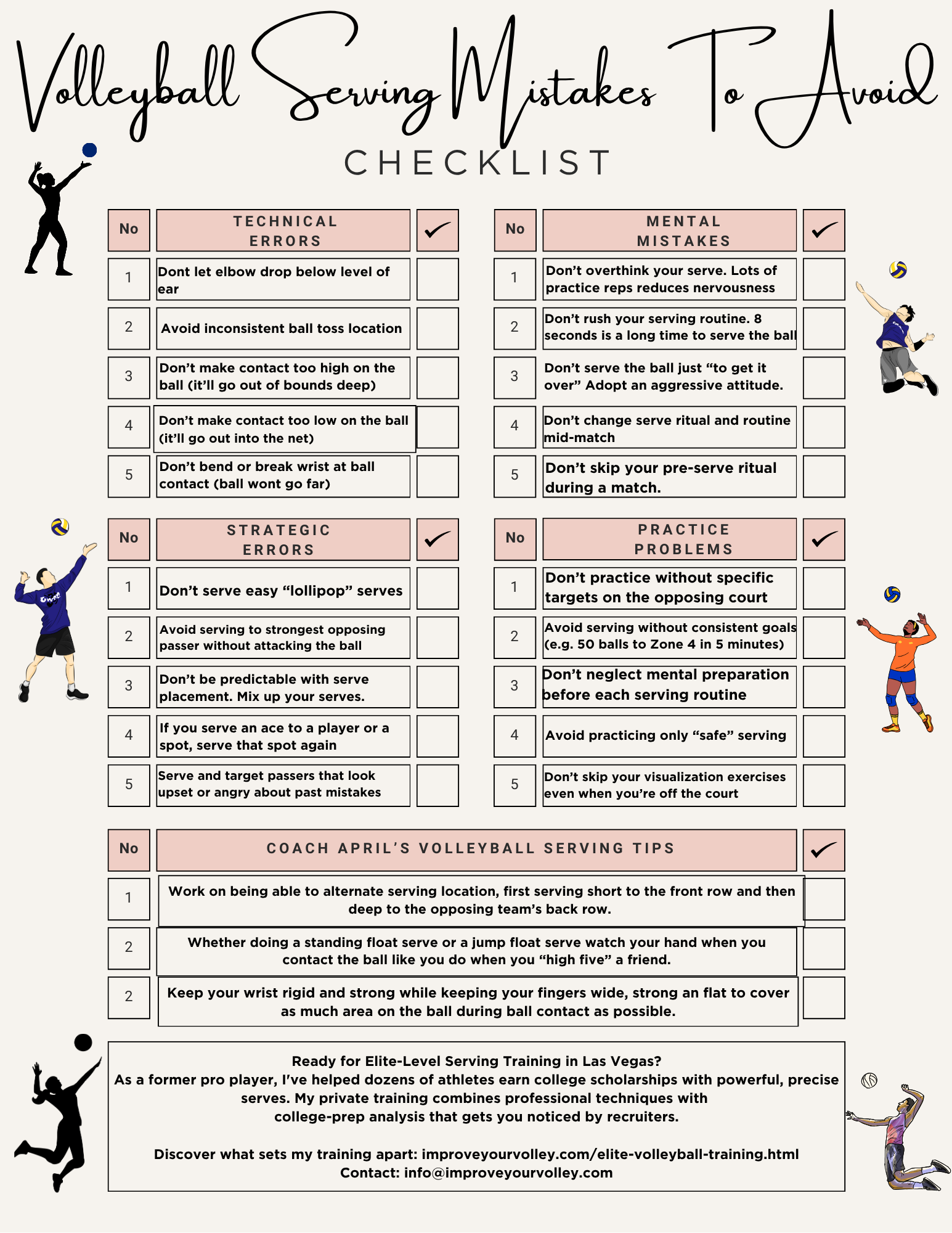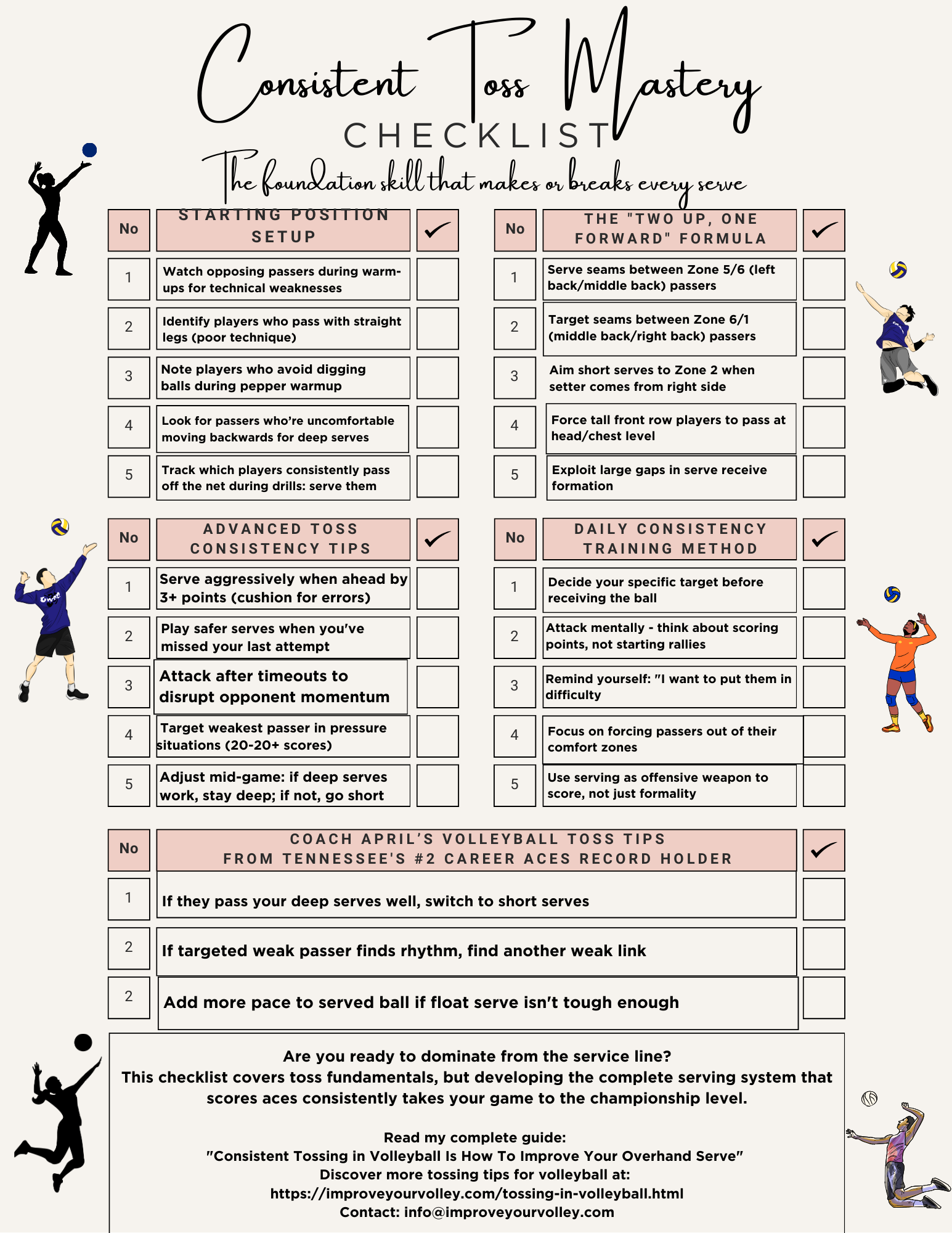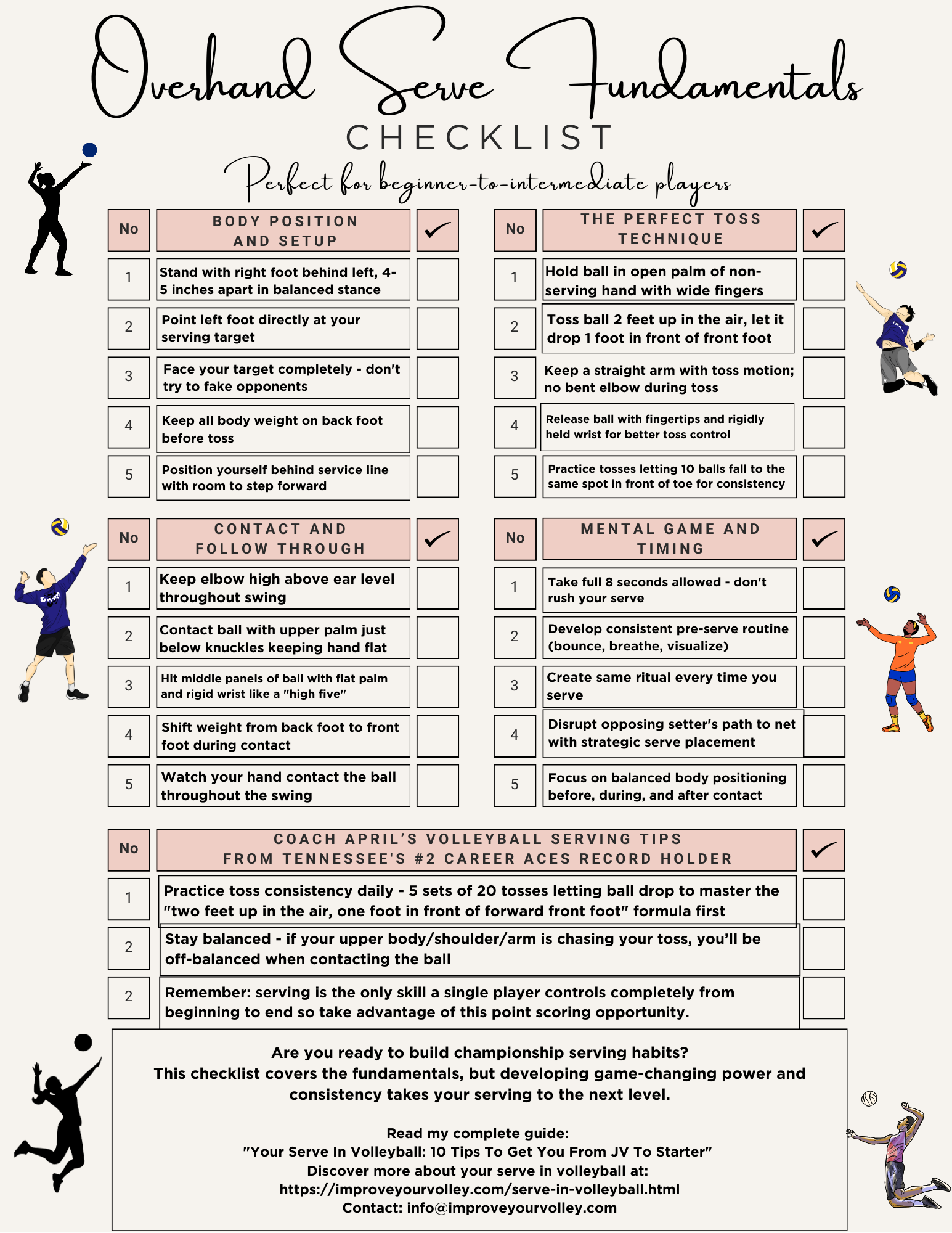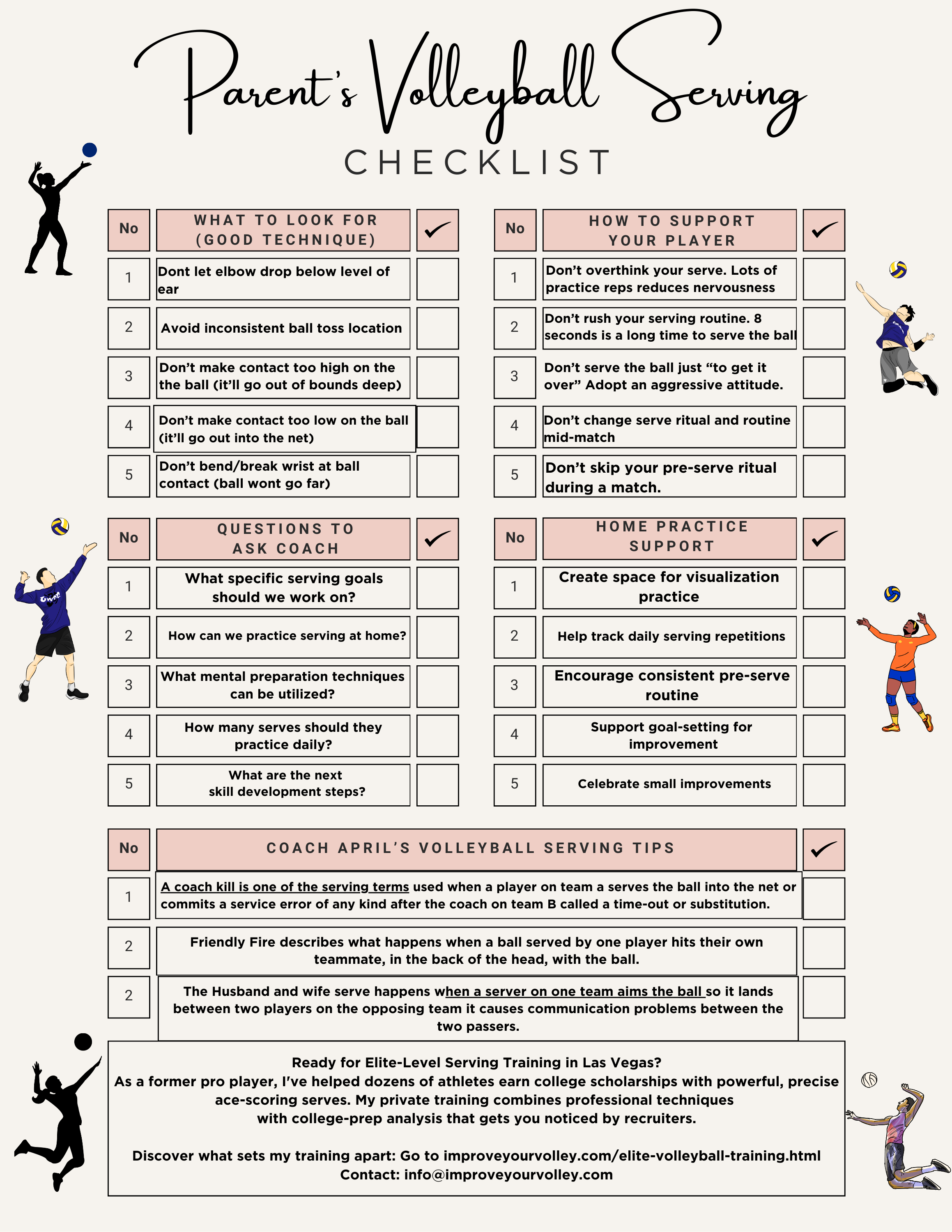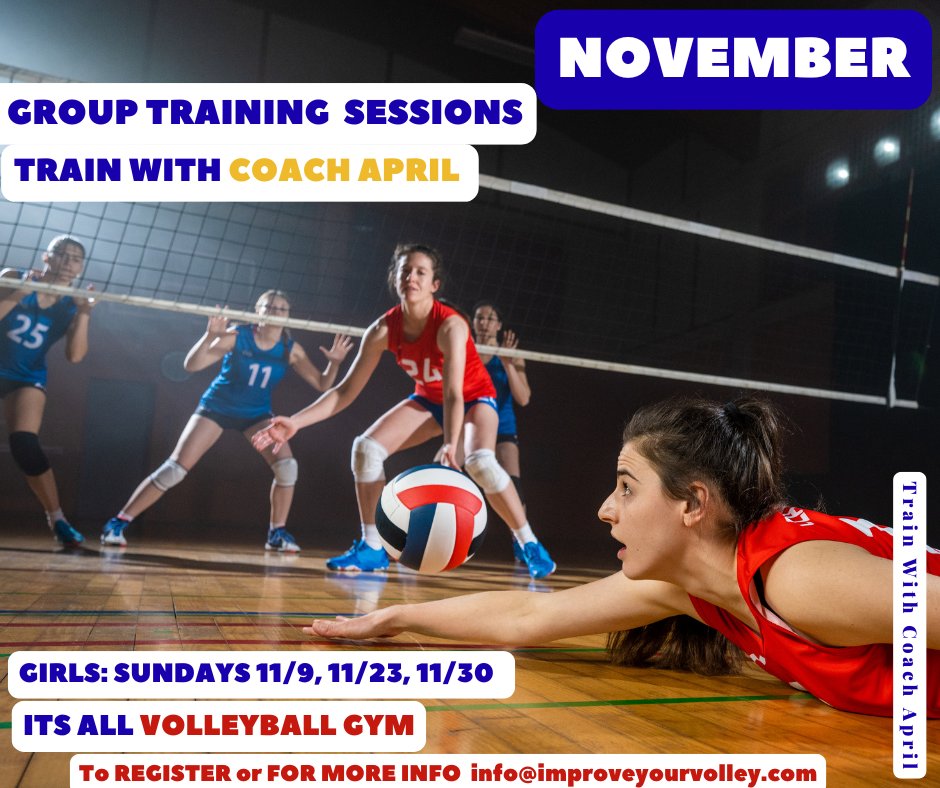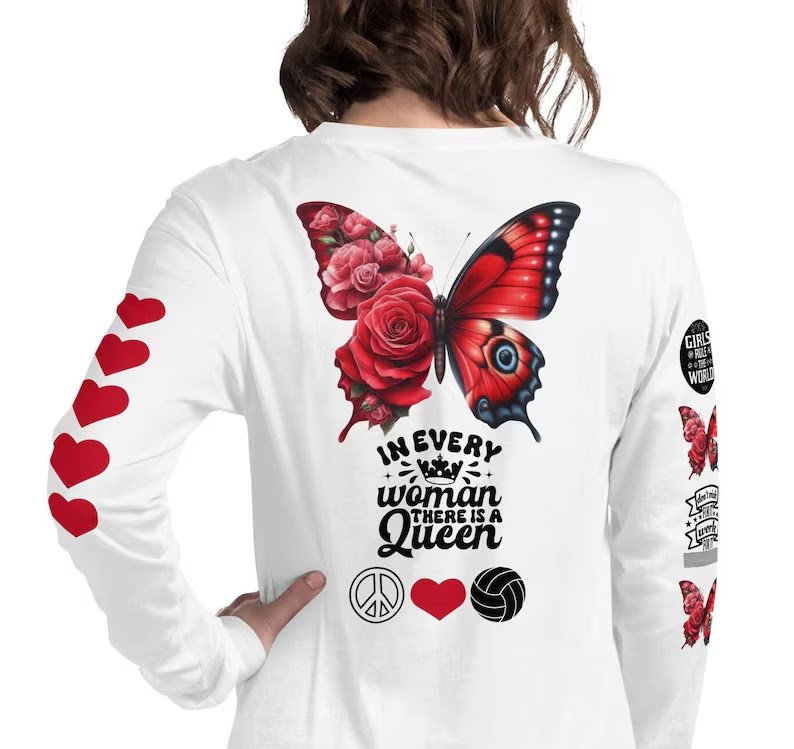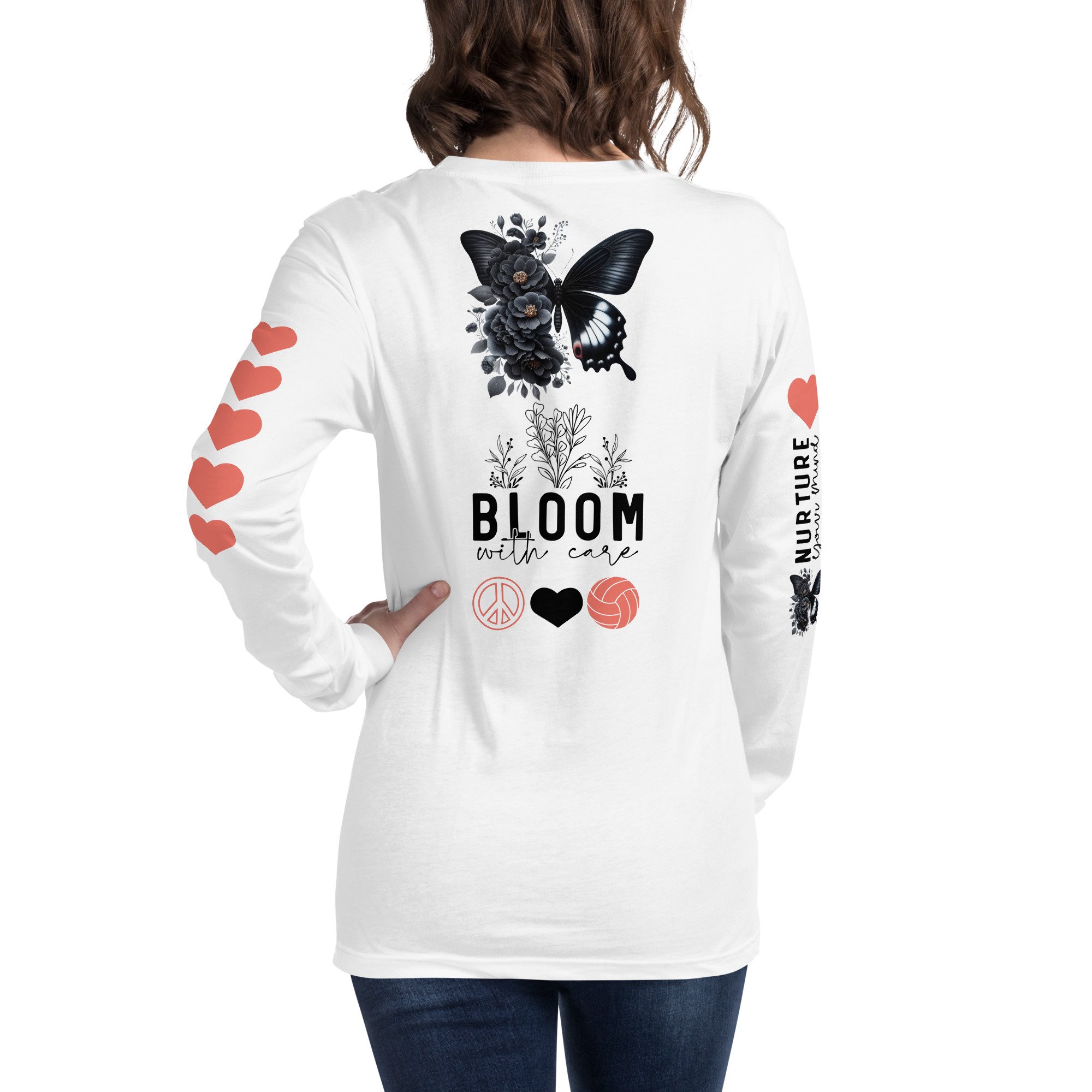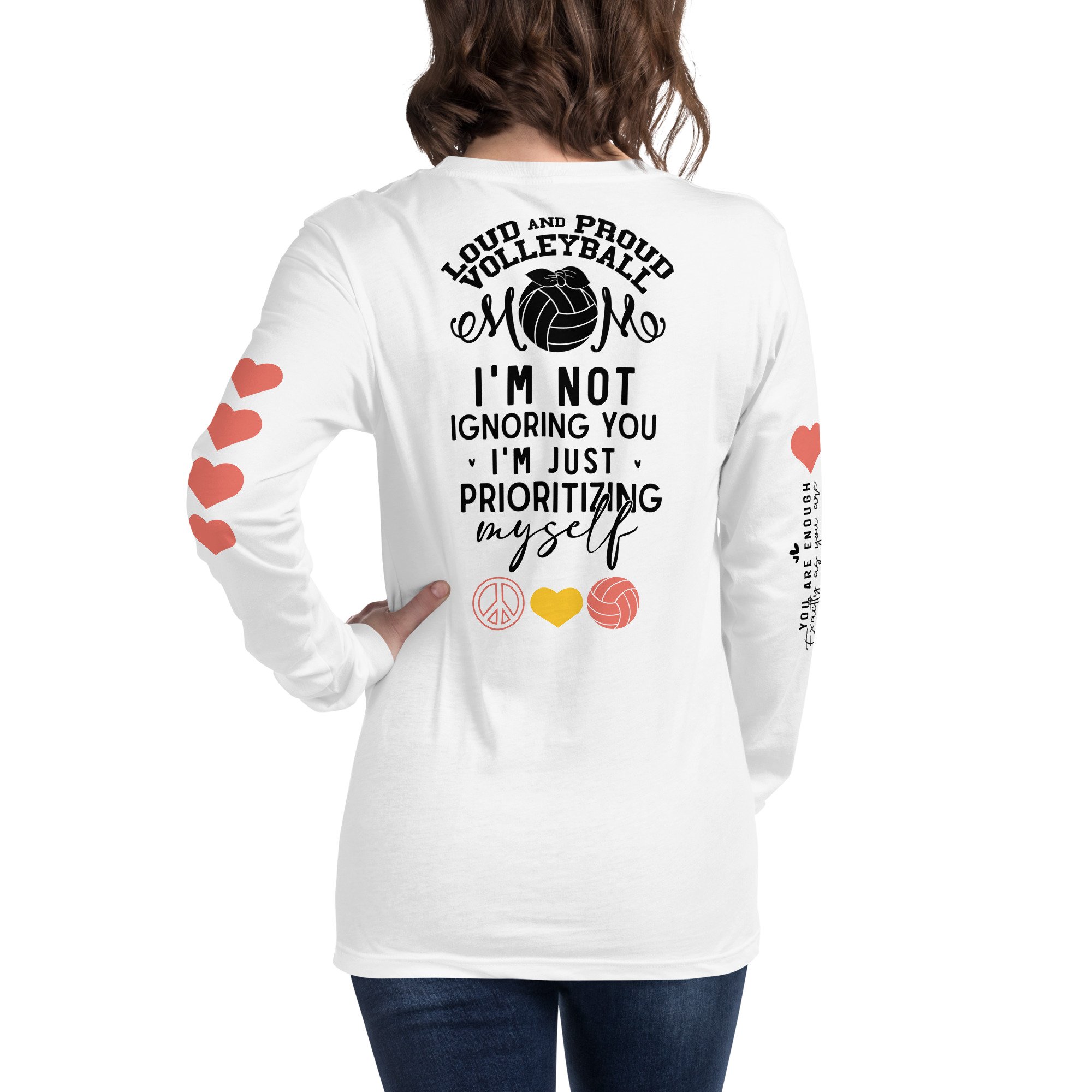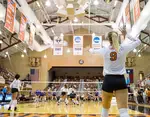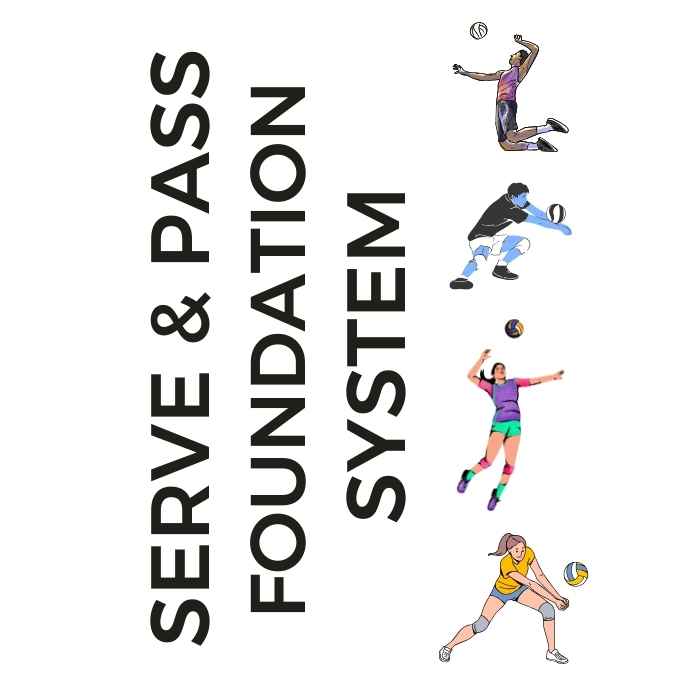
Serve + Pass Foundation System: The Complete Skills Arsenal The two-skill mastery system that transforms inconsistent players into the athletes coaches build their lineups around. Stop Struggling With The Two Most Important Skills In Volleyball!
- Improve Your Volleyball with Coach April
- Words Used in Volleyball
Words Used In Volleyball: Basic Terms, Slang, Phrases, Jargon, Lingo
Explore the extensive list of words used in volleyball with basic slang, lingo and vocabulary terms often used on the court by players and coaches and fans.
.Many of the words used in volleyball have everyday meanings and definitions to normal people but mean something completely different to us volleyball players and coaches.
For example a pancake to a non-volleyball player or coach is a breakfast food.
But for a volleyball player a pancake is a last ditch defensive move used to keep the ball off of the floor.
A player places their hand on the floor palm down, like a pancake, to allow the ball to land on the back of their hand instead of the floor.
Many volleyball terms we use regularly, have absolutely nothing in common with how they are originally meant to be used in everyday lingo by 'normal' people.
In fact some popular articles have been written describing the uniqueness of our volleyball language and how the words we use in our sport are interpreted in everyday English terminology.
Love volleyball slang? These tongue-in-cheek volleyball shirts celebrate the funny side of our sport - check out the 'Got Balls?' collection!
Each volleyball word in the list below is used by coaches, players and even fans, regularly, in practices or matches as regular jargon, necessary for us who play and coach, to relate to each other in this sport.
I included a master list of the most commonly used terms that link to the pages with their full definitions.
Lets review the first part from letters A -
A:Words used in volleyball for...?
- the three steps or four steps a hitter takes to gather momentum and height before contacting the ball while in the air.
- when a player performs a playing action with a teammate.
- a way of contacting the ball usually to send it over the net on the third contact during a rally
B:Words used in volleyball for...?
- an over the head contact on the ball which sends it behind the person contacting the ball
- when a player stops a ball at the net by raising their hands, shoulders, arms across the net, penetrating the plane of the net at the same time an opposing hitter is hitting the ball into the blocker's court
- when one blocker assists another in the blocking action of an opposing hitter
- when one or more players jump to block an opposing hitter but may or may not make contact with the ball
-another term for passing the volleyball; an underhand contact of the ball by a player that's made with two arms being held together at the wrists so they create a platform. This platform is used to contact the bottom third of the ball, underneath the ball, lifting it into the air towards another player or over the net.
C:Words used in volleyball for...?
-an emergency play made when a fast paced ball comes at a player. The player bends their arm at the elbow to deflect the ball into the air. The bent arm and elbow are in the shape of a chicken wing, thus the name.
-when a middle blocker moves their hands towards their outside blocker's hands to close the seam or hole between their two sets of hands to close the hole and to prevent a hitter from hitting the ball between them
-when a coach calls a play that results in their team getting a point from an attack play. Coach gets the credit for the kill.
-Also called "hitting diagonally" in European countries, a cross court hit is a ball hit at an angle into the opposing court by a spiker.
For example if a hitter in Zone 3 or 2 hits a ball to Zone 4 or Zone 5 in the opposing team's court, that's a cross court hit. If a hitter in Zone 4 hits the ball towards Zone 1, 2 or even 6 that's a cross court hit.
--a ball hit at a sharp angle into the opposing court by a spiker.
For example if a hitter in Zone 4 hits a ball to Zone 2 in the opposing team's court, that's a cut shot in indoor volleyball.
D:Words used in volleyball for...?
- the term used in defense to describe a defensive contact made by a player that results in keeping the ball from contacting the floor.
The player lowers their hips so they are lower than the oncoming attacked ball. Then they use the platform created by holding their arms together at their wrists to deflect the ball into the air with this platform.
-slang term for a beautiful set or a perfect "on target" pass.
-an attack hit using the tips of your fingers and not the palm of your hand to push the ball over the net and over the opposing players blocking hands to an empty space on the court floor: Dink is another word for the for the "tip"
- a move a player makes to keep from crashing to the floor after contacting the ball to keep it off the floor
-when two players go up to block a hitter
-when a player contacts the ball twice which is against the rules.
Most commonly done during a pass attempt, a "double hit" occurs when a ball contacts a player's platform and then contacts their chest or another part of their body before a teammate can make contact with the ball.
-when two players run a quick set at the same time...one goes in front of the setter and the other goes behind the setter giving her two options for a quick attack.
-a setter attack made when she/he is in the front row and instead of setting to one of her hitters she/he attacks the ball herself ..dumping it into the opposing team's court, with the goal of surprising the opposing team's defensive players.
E:Words used in volleyball for...?
Wear your volleyball vocabulary with pride! My volleyball slang shirt collection features terms every player knows.
F:Words used in volleyball for...?
-the official who calls the game while elevated on a stand. He initiates each rally with a whistle and is in charge of calling faults and net violations that occur on top of the net.
five set
-a five set match is a format used when the best of three out of five sets are played. If both teams are tied 2-2 at the end of playing the fourth set then the fifth set is a tiebreaker match
-used as the first contact of the three each team is allowed, a player holds both arms together in a way that creates a platform for them to use to contact and control the ball back up into the air, over the net or to another teammate
four set
-a match where a winner is declared after playing four sets. A team wins a four set match winning three sets before the opposing team does.
G:Words used in volleyball for...?
game
- another word for a set
H:Words used in volleyball for...?
-nonverbal communication hand language used by setters to communicate with their hitters telling them what type of set they are about to get
Hand signals are used by beach volleyball players to communicate blocking serving and defense instructions.
-when a ball comes to rest in a players arms or hands. This is against the rules
-created when one blocker moves to help block with a teammate. The hole created between their two upraised arms is called the seam or the hole in the block
-a served ball that lands between two players and neither go for the ball because they think each other is going to get it.
This usually ends up in the teammates "discussing/arguing".... "I thought you were going to get it." No I thought you were going to get it"....just like a husband and wife would.
I:Words used in volleyball for...?
J:Words used in volleyball for...?
-when two players make contact with the ball at the same time above the plane of the net
K:Words used in volleyball for...?
-a name for an attack hit made by a player who hits the ball to the floor inside the court of the opposing team during a rally without committing a fault
-instead of jumping with both hands and arms together to stop a hitter from hitting the ball into their court, a blcker jumps purposefully with both hands apart in an effort to block both angle options the hitter may try to hit to.
L:Words used in volleyball for...?
-a defensive specialist allowed to go in and out of the game for teammates when they rotate to the back row.
The libero specializes in digging, passing and serving skills.
-when a player contacts the ball in such a way that the ball isnt deflected, its lifted into the air. This is an illegal contact. This usually occurs when the ball comes to a rest in the palm of a player's hand.
-a member of the referee corp appointed to watch the end line and side lines for any faults during a match
- when a player hits, tips or dinks down the side line closest to them on the opposing court
- a great defensive dig made with the arms in the shape of lips
M:Words used in volleyball for...?
-usually the tallest player on the team assigned to hit and play defense from Zone 3 on the court.
Their primary job on defense is to stop balls at the net from crossing into their court. On offense their primary job is to attack quick sets from the middle zones at the net.
- a hard hit ball or serve
N:Words used in volleyball for...?
O:Words used in volleyball for...?
-the blocker who doesnt go up to actively block but slides off the net to play defense because the opposing team's setter set the ball away from this blocker
-one blocker goes up to block against one spiker. As opposed to two blockers going up to block against one spiker
- quick set delivered by a setter, usually a foot above the net to a hitter usually the middle hitter typically from Zone 3 the middle area of the net
-a blocker on either side of the middle blocker, either a right side blocker or a left side blocker
- a set delivered to Zone 4 or Zone 2
- what the ball does when it crosses the net; what a blocker does when their hands penetrate the plane of the net during a block
- a ball contacted so that instead of landing where the setter is, it travels over the net
- a ball contacted so that instead of landing where the hitter is, it travels over the hitter's head
An overset also occurs when a ball that was set to a hitter, travels over the net before the hitter can hit the ball
P:Words used in volleyball for...?
- a defensive move made by a player who puts the palm of their hand on the ground so the ball contacts the hand and not the floor.
A pancake is an emergency defensive technique used by indoor players as a last ditch effort to dig a volleyball by keeping the it off of the floor.
Here's how it works.
A player extends their hand flat on the floor, like a pancake, with their palm down and fingers straight, in such a manner that when the ball hits their hand, it pops back in the air without touching the court floor.
This action takes practice because it's a matter of
- identifying where the ball is going to come down
- perfecting the ability of gauging the speed of the ball so the player can
- perfectly time the correct placement of their hand in the right spot
If done correctly, the referee, will consider the "pancaked ball" as one of the three contacts a team gets while on defense.
Official volleyball rules state that while doing the "pancake" no part of the ball should make contact with the floor otherwise the referee will whistle for play to stop and the ball will be awarded to the opposing team.
-what blockers do with hands and arms at the highest point of their jump
In their attempt to stop an opposing hitter from spiking the ball into their court, blockers will "penetrate over the net" with their armpits, shoulders, arms and hands, without touching the net..to block the ball the hitter is attacking.
-a traditional pregame and practice warmup drill usually with two partners that incorporates three of the six basic skills: setting, passing and hitting at each other
Q:Words used in volleyball for...?
- a low set in the middle.
Usually one to two feet high, this is the most common set a middle blocker hits from Zone 3, the middle of the net. Its used to quicken up a team's offense.
R:Words used in volleyball for...?
-a blocker makes a decision in mid action to take an area away from a hitter based on the direction and other indications the hitter shows when she/he is hitting
- a loaded athletic position a player assumes before performing one of the six basic skills
Knees slightly bent, arm position can vary, either at a player's sides or slightly raised in front of them depending on the skill they are about to perform
-an error committed by a player in serve receive attempting to receive the ball.
- a method a player uses to complete a defensive dig or save by falling to the ground in a safe manner that allows him/her to get up quickly and continue playing
The barrel roll is the most common "roll" used among elite and collegiate players.
-slang for a big blocking action that results in a player stopping a hitter at the net in spectacular fashion; also known as a "monster block"
A "roof is built" by the slanted angle shape of the blocker's hands and arms "penetrating the net" which they use to close down a hitter's attack attempt
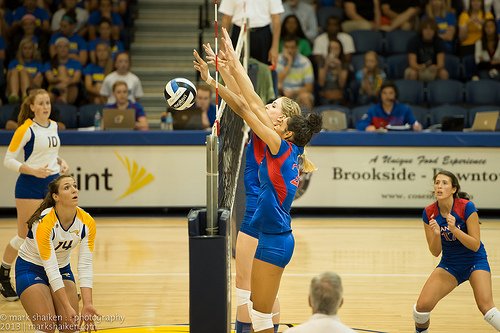 Words used in volleyball for blocking: A "roof is built" by the slanted angle shape of the blocker's hands and arms "penetrating the net" which they use to close down a hitter's attack attempt (photo Shakes KC)
Words used in volleyball for blocking: A "roof is built" by the slanted angle shape of the blocker's hands and arms "penetrating the net" which they use to close down a hitter's attack attempt (photo Shakes KC)S:Words used in volleyball for...?
-when blockers set up at the net too close together.
It's illegal to keep the opposing team's passers in serve receive from seeing the server.
-when blockers "penetrate the plane of the net" with arms and hands in a way that keeps the ball from coming between them and the net
-the hole or area between two blockers hands when they block together
-located on the opposite side of the net from the first referee, the second referee has a whistle and keeps track of the score table, substitutions and alert the first referee about net calls and foot faults below the net.
-the quarterback of the team, the setter is in charge of running the offense
The responsibility of the setter is to try and touch every second ball on their side during a rally so they can deliver that ball to one of their hitters to make an attack hit.
-slang for a passing error when the ball flies or ricochets off a player's arms and out of bounds during their attempt to control the ball to the setter or another teammate
-a name for an attack hit made by a player who takes a 3 - 4 step approach to the ball in order to gain momentum and height to use to hit the ball with force from an elevated position in the air over the net into the opposing team's court
- when blocking, a player positions themselves in front of the opposing hitter they intend to attempt to block, while staying parallel to the net.
-A stuff block describes a type of block in volleyball that was so efficiently performed that it didn't allow the hitter enough time to really hit the ball.
-a blocking technique, you use to travel along the net while swinging your arms up and over using the momentum of the jump to gain more height in the air to help you penetrate the plane of the net even more
Skyrocket Your Volleyball Skills with My Personalized Coaching
Ready to transform your game? My complete volleyball skills training system has helped hundreds of players master serving, passing, and more.
T: Words used in volleyball for...?
-when a ball has been contacted by a player before it goes out of bounds and/or is touched or contacted by an opposing player
-when a player spikes a ball so that it touches or "tools" the hand of the opposing team's blocker before travelling out of bounds.
- when a player touches a ball while blocking or in defense when the ball is travelling out of bounds.
-when three people go up to block one hitter in an attempt to stop the ball at the net before it crosses over into their court
- a ball set 2 - 3 feet in the air..a two ball or 'two set' goes straight up and straight down without being pushed away from the setter along the net.
The two set is usually set in or close to Zone 3 and Zone 2.
U:Words used in volleyball for....?
-when a body part travels across the centerline underneath the net, the player has travelled 'under the net'
- a good defensive play where a player successfully got a ball "up" before it hit the floor on their court
--same as tool the block; when a hitter wipes the opposing blocker's external hand with the ball so the blocker is the last person to touch the ball before it travels out of bounds
V
W: Words used in volleyball for...?
-same as tool the block; when a hitter wipes the opposing blocker's external hand with the ball so the blocker is the last person to touch the ball before it travels out of bounds
Y
-a warning for an infraction given by the first referee to a player or a coach
Z
Words Used In Volleyball
Where do you need to go now?
Here are three options:
- Learn more about the volleyball words, terms and terminology in the Related Links below.
- Follow the suggested reading on our Sitemap page Learning How To Play (Sitemap)
- Or visit the pages in the Information section in the drop down menu at the top of the page.
If your athlete struggles with consistent serve receive, gets subbed out, or is overlooked for playing time—this is the fix you’ve been looking for.

Struggling with passing consistency?
I help talented passers tired of getting pulled from games because of inconsistent serve receive skills BUILD passing confidence without expensive private lessons using the same 3-step system that's helped dozens of my athletes get recruited.
Download my eBook for $17.99 and start building the passing confidence that keeps you on the court—and gets you seen by college coaches.
From Lady Vol to Legend: Coach April Produces Powerful Passionate Players...is that you?
What Are You Looking For?
Click to Download Your Pre Serving Ritual Mastery Checklist pdf:
🎯Volleyball Pre Serving Ritual Guide -
Players! Learn How To Transform Your Serve from Weak to Weapon
Click to Download Your Parent's Volleyball Serving Checklist pdf
🎯Parent's Volleyball Serving Checklist Guide
Parents! Help Your Player Develop Championship Serves (Even If You've Never Played)

Hi there!
Thanks for stopping by. Hope you learned something today that will help you reach your volleyball goals.
Be sure to subscribe to my email newsletter so you can learn more each week!
Stay strong! Stay motivated!
-Coach April

SUSCRIBE to my email newsletter below!
 Click to learn more about the weekly volleyball classes and clinics or email info@imrpoveyourvolley.com for information
Click to learn more about the weekly volleyball classes and clinics or email info@imrpoveyourvolley.com for informationCongratulations to my seven Boys-18s Vegas Volley club players who played in two state championship finals yesterday, the 3A and 5A State champinship finals at Sunrise Mountain High School.
TOURNAMENT CHAMPIONS!
A-1 Vegas Volley VBC
In It To Win It Tournament
May 2 - 4, 2025 Tournament
Gold Medalists
18s Premier Division
Vegas Volleyball's Unsung Heroes: Celebrating Moms with Peace Love Volleyball Shirts
Ready to energize your volleyball mom journey?
Subscribe to my 'Producing Powerful Passionate Peaceful Players' email list above on ImproveYourVolley.com.
You'll receive energy-boosting tips, exclusive insights from me, Coach April Chapple on maintaining momentum in volleyball.
Let's power up the Vegas volleyball scene together!
Recent Articles
-
5 Essential Serving Tips from Tennessee's #2 Career Aces Record Holder
Dec 09, 25 11:39 PM
I've identified the 5 essential serving tips that separate confident servers from struggling ones and you'll serve with the confidence that creates aces -
The Volleyball Toss How Consistent Is Your Ball Toss Before You Serve?
Dec 07, 25 12:29 AM
The volleyball toss for the overhand serve needs to consistently be two feet up in the air and one foot in front of front foot which puts the ball in front of your serving arm. -
Shop Small: Real Volleyball Training With + Results From A Real Coach
Dec 03, 25 10:30 AM
Support a woman-owned business. Get training from a former elite pro with 13+ years coaching experience. Ditch the big box store--invest in proven results.


